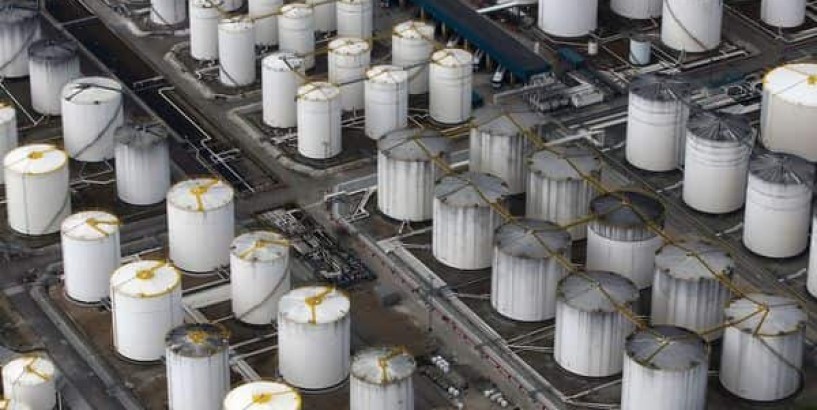The world’s biggest independent oil storage company has all but run out of space for crude and refined products as a result of the fast-expanding glut that Covid-19 has created.
“The available capacity on the oil side is almost completely sold out for our terminals," Gerard Paulides, chief financial officer of Rotterdam-based Royal Vopak NV, said in an interview. “For Vopak, worldwide available capacity that is not in maintenance is almost all gone and from what I hear elsewhere in the world we’re not the only ones."
Vopak is racing to complete maintenance to free up whatever space it can. Worldwide oil demand has collapsed at an unprecedented speed as the coronavirus has caused a mass halt to global transportation systems and hurt economies. With producers failing to reduce output at the same pace, an oversupply of crude and fuels has quickly emerged.
“It’s extremely tough to find something in this market," said Krien van Beek, a storage broker at ODIN-RVB Tank Storage Solutions, discussing the global situation for fuels. Companies that have their own tanks may not have filled them, but there are now barely any left for third-party hire, she said.
Storage incentive (Graphic: Bloomberg) US crude oil futures for May moved into negative territory on Monday -- meaning traders were effectively willing to pay people to take barrels. A large part of that was because of concerns about space to store.
From Indonesia to Mexico, companies are scouring the market for places to store crude oil and refined fuels, often parking unwanted supplies on tankers because shore-based facilities are full. In the North Sea, a handful of vessels have been idling with gasoline and jet fuel on board for days now.
Main hubs
Vopak operates three main hubs in Singapore, Rotterdam and Fujairah. The company traditionally benefits from contango in oil markets where the spot price is depressed, meaning fuels can be stored for sale later at a higher price. The company said in its earnings release that the impact of contango will certainly be seen in the second quarter. Vopak is working to return four Rotterdam tanks to operations that are currently undergoing maintenance.
“All the available capacity that is in demand will be used and is used," Paulides said.
The diesel, jet fuel and gasoline markets are all in sharp contango in Europe, the US and Asia Pacific. Jet and gasoline have both suffered massive demand losses, and diesel buying has also been hit, despite its uses beyond consumer transport.
The strain on storage is also starting to create some weird shipping movements as traders send tankers on odysseys to find the best places to stash supplies. The amount of oil stored at sea has also increased to almost 250 million barrels and global floating storage is now accelerating at an unprecedented pace, Clarksons Platou analyst Frode Morkedal said in a research note Tuesday.
“You can see that the margins are phenomenal and that the spot market is going to stratospheric levels," said Hugo de Stoop, Chief Executive Officer at Euronav, which owns crude tankers. “There are more and more ships which are being taken out of the fleet for storage purposes," he said in an interview with Bloomberg Television.
Two tankers that were hauling cargoes of diesel-type fuel to Europe from India have now changed course and are sailing for New York, where there’s more storage available, according to two people involved in the market. At least one jet fuel tanker that had earlier signaled Europe has also diverted to the US.
“Under pressure is probably putting it mildly," said Steve Sawyer, director of refining at Facts Global Energy, referring to global oil products storage. “We’re probably close to filling up."









